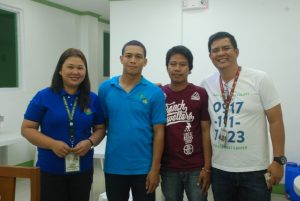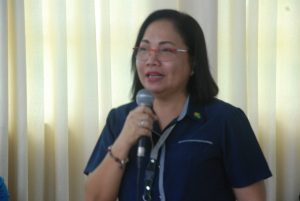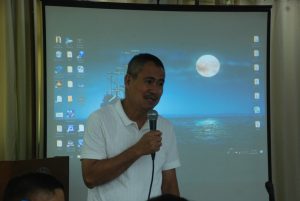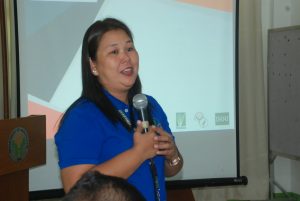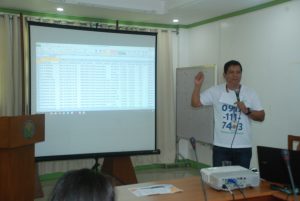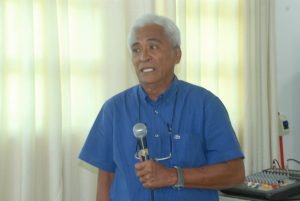SAN AGUSTIN, Pili, Camarines Sur—Twenty-nine government agriculturists, local farm technicians and representatives of the municipalities of Bula, Libmanan and Minalabac; PhilRice and the Department of Agriculture-Bicol attended the 1st Consultative Meeting on January 10, 2019 at the DA-Bicol Conference Room here after the launching of the Pest Risk Identification and Management (PRIMe) Project in 2018.
PRIMe is a four-year project funded by DA-Bureau of Agricultural Research (BAR) in collaboration with DA, PhilRice, International Rice Research Institute (IRRI) and the Bureau of Plant Industry (BPI) to improve rice productivity, welfare, and competitiveness of Filipino farmers by mitigating risks of major pest outbreaks. The culmination of the project is its mainstreaming into the regular program of DA-regional offices.
For the Bicol Region, the pilot areas include 31 sampling sites of 45 farmers in Minalabac; 29 sites of 34 farmers in Libmanan, and 25 sites of 30 farmers in Bula.
According to Minalabac Agricultural Technician Mark Ibo, the cooperating farmers were accommodating and receptive. They are optimistic that the result of the project will help them manage their farm in terms of irrigation, fertilizer application, pest management recommendations and rice production estimation. He added that advance and regular monitoring and surveillance on rice field can prevent pest outbreak.
DA-Bicol Regional Technical Director for Research and Regulations Dr. Edgar R. Madrid said that agriculture secretary Emmanuel F. Piñol has a number of instructions and propositions to improve production and profitability of farmers. One of the challenges of PRIME should be the harmonization of protocols for rice farmers on pest management.
Rice farmers lose 40 percent of their crop annually due to pests. Extreme weather events and misuse of pesticides contribute a lot to pest issues.
DA-Bicol PRIME Focal Person and OIC-Chief of the Integrated Laboratory Division (ILD) Rosita M. Imperial added that this project combines the expertise and skills of the ILD, Regulatory Division technical personnel and LGU technicians to come up with information and guide essential in planning, decision making and scheduling for proper pest management.
According to PhilRice Senior Science Research Specialist Leonardo Marquez, the data on field profile, cultural practices, pest survey, pest management, nutrient management and yield information gathered since July 2018 were stored in a centralized data storage.
DA-Bicol PRIME Assistant Focal Person Ailene C. Babelonia cited that the 2019 budget amounting to over Php1.3M was approved to be used for intensive data gathering and collection of pest, consultative meeting, quarterly mobile conference, and routinary collection.
“With the combine efforts, trainings and skills of the ILD, Regulatory and LGU technicians, I hope that in three years, our rice farmers will be progressive with the decrease of pest occurrence in their rice fields,” said DA-Bicol Regulation Division OIC-Chief Raymond R. Marcelino. (jayson m. Gonzales with photos by Emil Pasumbal)
